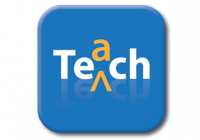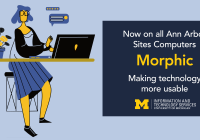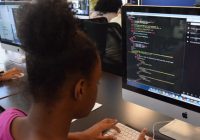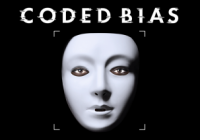Tag Archives: DEI
This month in EDUCAUSE: Communities of practice, transform teaching and learning with digital learning, workforce shakeup, and more
My name is Irene Knokh and I’m the EDUCAUSE ambassador for U-M. I share articles of interest, upcoming trends, and advocate on your behalf for EDUCAUSE. Welcome back to Fall 2022. It has been an intense summer and the newsletter took a hiatus for a couple of months! There’s a lot to share with you in the newsletter. 30 higher… Read More »
This month in EDUCAUSE
This month in EDUCAUSE
This month in EDUCAUSE
Submit your Enriching Scholarship 2022 proposal by March 1
African Americans in cryptologic history
African Americans have served in the U.S. military since the revolutionary war, although the armed forces were not officially desegregated until 1948. Unfortunately, their service is all too often downplayed or not prominently known. One story that deserves highlighting is the cryptologic work done by William Coffee in the agency that would eventually become the NSA. Mr. Coffee… Read More »
Profiles in IT: Candice Wilson—Constructive creator
Candice Wilson is a solutions architect and Jira project manager for HITS. She has been passionate about tech since childhood and her love of creating has led to an exciting career at Michigan Medicine. Candice’s interest in making things extends beyond her work at the university and can be found in her hobbies — from 3D printing to cooking and more. She particularly enjoys creating things to gift to others.
The many options of NameCoach help build inclusivity
U-M leading the way in assistive technology testing, design
U-M will be a beta site for Morphic, a new system that makes technology significantly more usable for individuals with disabilities and others who have difficulty using standard digital setups. Morphic is now available on all Campus Computing Sites computers on the UM-Ann Arbor campus. Learn about how Morphic came to U-M, the benefits of Morphic, and how you can provide your feedback on new features as they are developed.
Eight more languages added to placement reporting
An article in the URecord back in August featured the power of collaboration between ITS and the Language Resource Center. ITS has recently completed adding the majority of other language placement reporting processes by adding an additional eight languages to the workflow. Thanks to the project’s production workflow, any future languages can also be added in a timely… Read More »
NameCoach pronunciation tool API now available to developers
NameCoach is a web-based tool that allows users to record, listen to, and learn names. It promotes inclusivity across all campuses (Ann Arbor, Dearborn, Flint, and Michigan Medicine) for all current students, faculty, and staff. NameCoach enables units to promote organizational diversity, equity, and inclusion, foster employee retention, and forge better customer relationships. Now, the NameCoach Participants APIs are… Read More »
Profiles in IT: Oliver Haimson—Researcher & advocate
Oliver Haimson is an assistant professor at the School of Information. In his career, he focuses on ensuring that medical information is accurate, accessible, easy to locate, and relevant to a diverse set of LGBTQ+ identities and experiences. In his free time, he enjoys exploring parks and nature preserves on his bike.
Profiles in IT: Lauren Atkins Budde—Delightful director
Lauren Atkins Budde is the director of Open Learning Initiatives with the Center for Academic Innovation (CAI). In her role, she oversees the strategy, support, evolution, and delivery for multiple online learning opportunities, including non-credit massive open online courses (MOOCs), free and open online learning events called Teach-Outs, short-form video content, and educational podcasts.
NameCoach pronunciation tool now available in Canvas
NameCoach is a tool that allows students and faculty to create an audio recording to help peers better pronounce their names within officially-provisioned Canvas courses. Provided by Information and Technology Services (ITS), NameCoach is now available on all campuses (Ann Arbor, Dearborn, Flint, and Michigan Medicine) to support inclusive teaching and learning. The tool has two parts: NameCoach… Read More »
Profiles in IT: Sanam Arab—Community servant
AI – transformative and biased, say U-M panelists
A panel of U-M experts discussed the film “Coded Bias” at a Dissonance Event on April 15. “Coded Bias” follows the journey of Joy Buolamwini, a computer scientist and digital activist based at the MIT Media Lab, as she worked with others to push for the first legislation in the U.S. to govern against bias in artificial intelligence (AI) algorithms. The Dissonance organizing committee brought the panelists together for an online discussion of bias in AI, transformative opportunities for its use, and more.
New online education program brings high-demand topics in technology to the world
The Continuum program, launched in Fall 2020, offers continuing online education for everyone from high schoolers to engineers already established in their careers taught by faculty in Electrical and Computer Engineering (ECE) at the University of Michigan. Courses range from introductory classes designed for high school students to specialized classes for those already established in their careers to keep up-to-date… Read More »
“Coded Bias” watch event; Join experts for panel discussion afterwards
You are invited to a free, on-demand screening of the documentary film Coded Bias—available anytime from April 8 to 14 and a panel discussion of the film April 15. Coded Bias explores the fallout from an MIT Media Lab researcher’s discovery that facial recognition does not identify dark-skinned faces and women’s faces accurately. The film follows her journey to push for the first legislation in the U.S. to govern against bias in the algorithms.
ARC, LSA support groundbreaking global energy tracking
How can technology services like high-performance computing and storage help a political scientist contribute to more equal access to electricity around the world? Brian Min, associate professor of political science and research associate professor with the Center for Political Studies, and lead researcher Zachary O’Keeffe have been using nightly satellite imagery to generate new indicators of electricity access… Read More »















